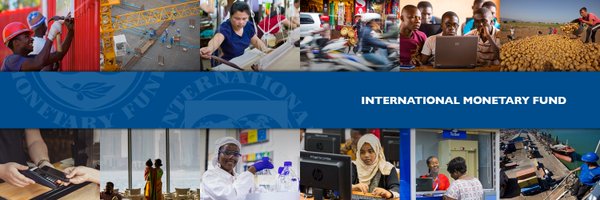 (AGENPARL) - Roma, 12 Ottobre 2022
(AGENPARL) - Roma, 12 Ottobre 2022(AGENPARL) – mer 12 ottobre 2022 [AM cover]
Dear Colleague, welcome to the October 12 briefing from the
2022 Annual Meetings
In today’s briefing, we highlight the IMF’s latest World Economic Outlook including a cut to next year’s growth forecast, risks to global financial stability, dealing with debt restructuring, Europe’s energy crunch, inflation expectations, refugees, and more.
—————————————————————
Pierre-Olivier Gourinchas said inflation pressures were proving more persistent than anticipated and rapidly rising prices are causing serious hardship for households almost everywhere, particularly the poor.
The IMF left its global growth forecast for 2023 unchanged at 3.2 percent, but lowered next year’s projection by 0.2 percentage points from July’s outlook to 2.7 percent.
“For many people 2023 will feel like a recession,” Gourinchas said.
Policy tradeoffs have become acutely challenging as inflation extends beyond food and energy, with risks that over-tightening could tip the global economy into an unnecessarily severe recession while under-tightening could further entrench inflation, he added.
“The hard-won credibility of central banks could be undermined if they misjudge yet again the stubborn persistence of inflation.”
The IMF’s chief economist also took questions on sovereign debt and the common framework, the dollar, the energy crisis and climate transition, COVID variants and vaccinations, spillover risks from the UK, and more.
—————————————————————
With conditions worsening in recent weeks, key gauges of systemic risk have risen. There is a risk of a disorderly tightening in financial conditions that may interact with preexisting vulnerabilities.
In emerging markets, rising rates, worsening fundamentals, and large outflows have pushed up borrowing costs notably. Twenty countries are either in default or trading at distressed levels: unless market conditions improve, there is a risk of further sovereign defaults in frontier markets.
“Central banks must act resolutely to bring inflation back to target and avoid a de-anchoring of inflation expectations, which would damage their credibility.”
—————————————————————
Around 60 percent of low-income countries and around 25 percent of emerging markets are either in debt distress or at high risk of debt distress.
Six sovereigns have defaulted this year already. That compares with one or two in a typical year, said Elena Dugger of credit-rating agency Moody’s.
“Debt was seen as an easy way out,” Axel Weber of the Center for Financial Studies told the seminar, chaired by the FT’s Martin Wolf, because everyone thought interest rates would stay low.
However, a sharp rise in rates as central banks race to control inflation is adding to default risks, as is a strong appreciation of the dollar, the currency in which 90 percent of emerging-market debt is denominated.
The creditor and debtor landscape is far more complex than it was 20 or 30 years ago, and institutions have struggled to keep up with secretive borrowing and lending practices.
“It’s scandalous that public debt is not publicly known,” said Georgetown University’s Anna Gelpern.
Weber, a former president of Germany’s Bundesbank, said that many countries do not know who their creditors are.
“Without transparency there is no fair concept of restructuring.”
The IMF’s Gita Gopinath, the University of Edinburgh’s Lee Buchheit and Moody’s Elena Dugger also contributed to the discussion.
NUMBER OF THE DAY
The IMF has cut its forecast for global growth next year by 0.2 percentage points to 2.7 percent as the world’s three-largest economies continue to stall.
ECONOMIC GROWTH
[Social contract]
With prices rapidly rising, cash-strapped governments will have to strike a balance between policies to tackle inflation and growth. “The social contract agenda,” said University of Michigan professor Justin Wolfers, “is ultimately undergirded and paid for by economic growth.”
The decline in development assistance and rise in debt make it harder for governments to provide the support that’s needed. Houngbo suggested “other tools such as channeling excessive profits from the energy sector” to employment and income initiatives.
Sara Cumbers of World Risk Poll concluded with some key principles for social spending, including public engagement and making data more readily available and transparent.
—————————————————————
[spacer]
Surging energy prices in Europe have increased the cost of living by around 10 percent in Denmark, Estonia and the United Kingdom and 5 percent in France, Hungary, and Spain this year.

